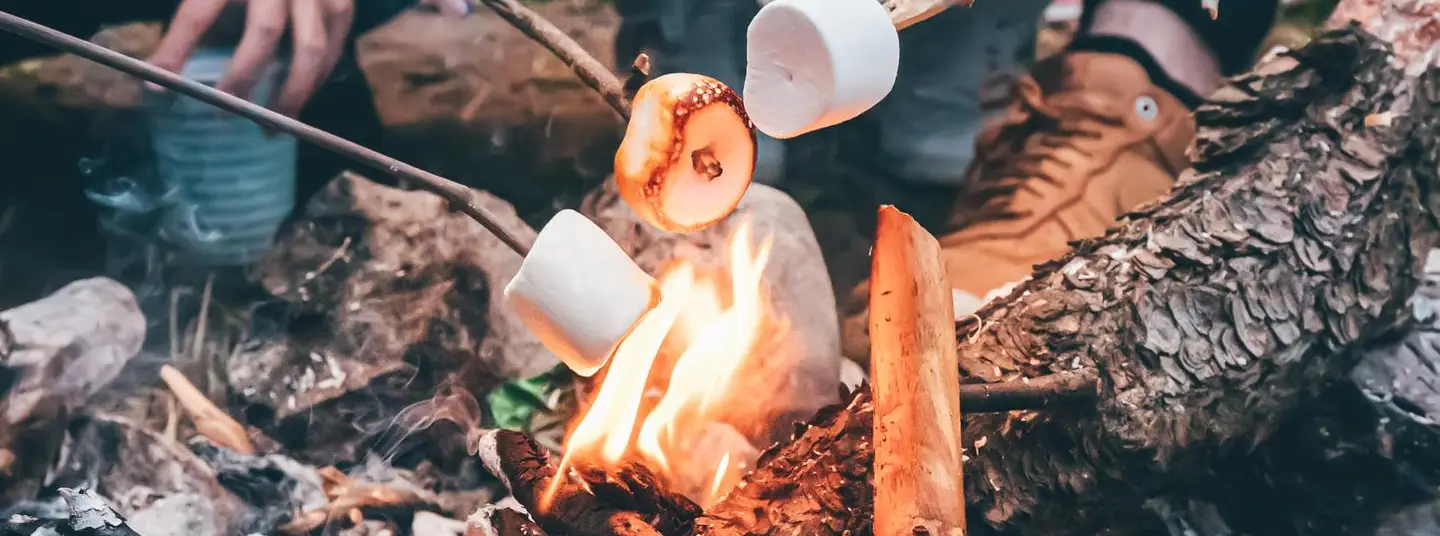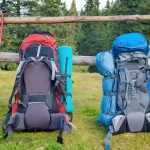

“Cooking in the Great Outdoors” delves into the enriching experience of preparing meals in nature. It’s more than just feeding; it’s about the camaraderie and stories shared around the campfire, the joy of cooking with basic tools, and the challenge it brings. The piece offers tips on essential gear, the importance of planning meals, and following Leave No Trace ethics to protect our natural surroundings. This guide aims to enhance your camping experience by turning mealtime into an opportunity for connection and adventure.
As camping enthusiasts, we understand that the allure of the great outdoors goes far beyond the thrill of setting up a tent or conquering a challenging hike. It’s an opportunity to escape the daily grind, immerse ourselves in nature’s beauty, and, perhaps most importantly, embrace the art of cooking in the open air. Cooking during camping trips isn’t just about sustenance; it’s a multifaceted experience that nourishes not only our bodies but also our souls. In this exploration, we delve into the heart of camp, where the magic of outdoor cooking fosters a sense of community, and where the simple act of sharing a meal under the stars binds us together.
The Heart of Camp
At the heart of every campsite, you’ll often find a central gathering place—an open campfire, a rustic camp kitchen, or a portable stove. This is where the alchemy of outdoor cooking begins. It’s more than a functional space; it’s the beating heart of camp, where stories are shared, laughter echoes through the woods, and bonds are forged over crackling flames.

Nourishing the Body
Amidst the rugged beauty of the wilderness, it’s easy to overlook the physical demands of camping. Hiking, exploring, and even setting up camp can be physically taxing. Therefore, the role of nourishing meals becomes paramount. Outdoor cuisine isn’t limited to dehydrated meals; it encompasses hearty breakfasts, trailside lunches, and savory dinners cooked with care.
Proper nutrition not only fuels our adventures but also ensures our bodies are ready for the next day’s challenges. The calories provided by a well-cooked meal are the currency of the outdoors, offering the energy needed to explore, hike, and fully immerse ourselves in the natural wonders that surround us.
The Joy of Outdoor Cooking
Outdoor cooking is a sensory experience like no other. The aroma of freshly brewed campfire coffee, the sizzle of bacon in a cast-iron skillet, and the satisfaction of a perfectly roasted marshmallow—all of these create an orchestration of senses that elevate the camping experience.
In the great outdoors, simple ingredients are transformed into culinary delights, and the act of cooking itself becomes an adventure. Whether you’re grilling over an open flame, simmering a stew in a Dutch oven, or roasting marshmallows for s’mores, each dish tells a story of its own, intimately linked to the environment in which it’s prepared.
A Sense of Community
One of the most beautiful aspects of cooking in the great outdoors is its power to create a profound sense of community. Campers often take on different roles, from the designated cook to the sous-chef and the gatherer of firewood. These roles are fluid, and they foster a shared responsibility that strengthens the bonds among campers.
Cooking together encourages cooperation and communication. It’s a time to exchange stories, share tips and tricks, and create memories that last a lifetime. As a meal comes together, the sense of accomplishment and the joy of sharing a delicious feast under the open sky solidify the connections formed around the campfire.
Recipes and Traditions
The traditions of outdoor cooking are as diverse as the landscapes themselves. Each camping trip brings an opportunity to revisit cherished recipes and create new ones. Whether it’s the time-honored tradition of making s’mores, crafting foil packet meals, or mastering the art of Dutch oven cooking, these culinary traditions become an integral part of the camping experience.
The beauty of these recipes lies not only in their simplicity but also in their adaptability to the outdoor setting. With the right ingredients and equipment, you can create gourmet meals or campfire classics, depending on your preference and the mood of the group.

Challenges and Creativity
Outdoor cooking, while immensely rewarding, isn’t without its challenges. Mother Nature can be unpredictable, and campers often contend with weather variations, limited resources, and the absence of a fully-equipped kitchen. However, these challenges serve as opportunities for creativity and innovation.
Campers learn to adapt and problem-solve, whether it’s finding alternative cooking methods during a rainstorm or making the most of limited ingredients. The satisfaction of conquering these challenges adds a layer of accomplishment to every meal and reinforces the bond between campers who overcome them together.
Environmental Responsibility
As stewards of the outdoors, it’s essential to practice responsible cooking habits. This includes adhering to Leave No Trace principles, respecting campfire regulations, and minimizing our impact on the environment. Responsible cooking preserves the natural beauty of our camping destinations for future generations to enjoy.
By following ethical and sustainable cooking practices, we not only protect the environment but also set an example for others to follow. Outdoor cooking becomes a way to connect with nature while respecting and preserving its delicate balance.
The Social Aspect of Dining
Mealtime at camp is a cherished social occasion. It’s a time when campers gather around the campfire or camp kitchen, sharing stories of the day’s adventures and discussing plans for the next. The act of dining together fosters meaningful conversations and deepens connections among campers.
The absence of distractions like screens and technology allows campers to be fully present, engaging in genuine interactions with fellow adventurers. Whether you’re swapping tales of wildlife encounters or simply enjoying the company of like-minded individuals, these moments around the dining table are the essence of camaraderie in the great outdoors.

Cooking Gear and Tips
To embark on a successful outdoor cooking journey, having the right gear and knowledge is essential. Here’s a list of essential cooking gear for camping:
- Camp Stove: A portable camp stove provides a reliable source of heat for cooking when campfires are restricted.
- Cookware: Lightweight, durable cookware, including pots, pans, and utensils, is essential for preparing meals.
- Fire Starters: Reliable fire starters, such as waterproof matches or a firestarter kit, are crucial for igniting campfires or stoves.
- Cooking Fuel: Depending on your cooking equipment, bring the appropriate fuel, whether it’s propane, butane, or white gas.
- Cooler: A well-insulated cooler keeps perishable items fresh and prevents food from spoiling.
- Meal Planning: Plan meals in advance, considering dietary preferences and restrictions. Preparing some ingredients at home can simplify cooking at camp.
- Campfire Safety: If using a campfire, follow safety guidelines, including having a water source nearby and ensuring the fire is completely extinguished.
- Leave No Trace: Practice Leave No Trace principles when disposing of food scraps and waste. Pack out what you pack in.
- Wild Edibles: Learn about edible plants and foraging practices to enhance your outdoor culinary adventures.
Conclusion
Cooking in the great outdoors transcends the act of preparing food; it’s a celebration of nature’s bounty, a testament to our adaptability, and a vehicle for building deep connections. Whether you’re savoring a steaming cup of campfire coffee at dawn, sharing stories around the campfire at night, or savoring a gourmet meal under the stars, the experience of cooking in the open air is a cherished aspect of camping. It’s a reminder that the simple pleasures of a well-cooked meal and the warmth of community are among the greatest rewards of venturing into the wild.
Author

Emily Wychwood
Emily is an avid camper and outdoors enthusiast, with a passion for exploring new places and trying out new gear. She grew up camping with her family and has continued the tradition with her own children, who love nothing more than roasting marshmallows around the campfire.
Recent Posts


